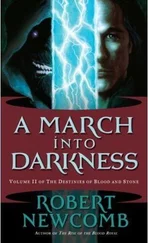Robert Pirsig - Lila. An Inquiry Into Morals
Здесь есть возможность читать онлайн «Robert Pirsig - Lila. An Inquiry Into Morals» весь текст электронной книги совершенно бесплатно (целиком полную версию без сокращений). В некоторых случаях можно слушать аудио, скачать через торрент в формате fb2 и присутствует краткое содержание. Жанр: Современная проза, на английском языке. Описание произведения, (предисловие) а так же отзывы посетителей доступны на портале библиотеки ЛибКат.
- Название:Lila. An Inquiry Into Morals
- Автор:
- Жанр:
- Год:неизвестен
- ISBN:нет данных
- Рейтинг книги:3 / 5. Голосов: 1
-
Избранное:Добавить в избранное
- Отзывы:
-
Ваша оценка:
- 60
- 1
- 2
- 3
- 4
- 5
Lila. An Inquiry Into Morals: краткое содержание, описание и аннотация
Предлагаем к чтению аннотацию, описание, краткое содержание или предисловие (зависит от того, что написал сам автор книги «Lila. An Inquiry Into Morals»). Если вы не нашли необходимую информацию о книге — напишите в комментариях, мы постараемся отыскать её.
Lila. An Inquiry Into Morals — читать онлайн бесплатно полную книгу (весь текст) целиком
Ниже представлен текст книги, разбитый по страницам. Система сохранения места последней прочитанной страницы, позволяет с удобством читать онлайн бесплатно книгу «Lila. An Inquiry Into Morals», без необходимости каждый раз заново искать на чём Вы остановились. Поставьте закладку, и сможете в любой момент перейти на страницу, на которой закончили чтение.
Интервал:
Закладка:
Phædrus remembered a conversation in the early sixties with a University of Chicago faculty member who was moving out of the Woodlawn neighborhood next to the university. He was moving because criminal blacks had moved in and it had become too dangerous to live there. Phædrus had said he didn’t think moving out was any solution.
The professor had blown up at him. What you don’t know! he had said. We’ve tried everything! We’ve tried workshops, study groups, councils. We’ve spent years in this. If there’s anything we’ve missed we don’t know what it is. Everything has failed.
The professor added, You don’t understand what a defeat this has been for us. It’s as though we never even tried.
Phædrus had had no answer at the time, but he had one now. The idea that biological crimes can be ended by intellect alone, that you can talk crime to death, doesn’t work. Intellectual patterns cannot directly control biological patterns. Only social patterns can control biological patterns, and the instrument of conversation between society and biology is not words. The instrument of conversation between society and biology has always been a policeman or a soldier and his gun. All the laws of history, all the arguments, all the Constitutions and the Bills of Rights and Declarations of Independence are nothing more than instructions to the military and police. If the military and police can’t or don’t follow these instructions properly they might as well have never been written.
Phædrus now thought that part of the professor’s paralysis was a commitment to the twentieth-century intellectual doctrines, in which his university has had a prominent role. A second part of the paralysis probably came from the fact that the criminals were black. If it had been a group of trash whites moving into the neighborhood, robbing and raping and killing, the response would have been much fiercer, but when whites denounced blacks for robbing and raping and killing they left themselves open to the charge of racism. In the atmosphere of public opinion of that time no intellectual dared to open himself to the charge of being a racist. Just the thought of it shut him up tight. Paralysis.
That charge is part of the paralysis of this city here. Right now.
The root of the racism charge goes all the way back to square one, to the subject-object metaphysics wherein man is an object who possesses a set of properties called a culture. A subject-object metaphysics lumps biological man and cultural man together as aspects of a single molecular unit. It goes on to reason that because it is immoral to speak against a people because of their genetic characteristics it is therefore also immoral to speak against a people because of their cultural characteristics. The anthropological doctrine of cultural relativism reinforces this. It says you cannot judge one culture in terms of the values of another. Science says there is no morality outside of cultural morality, therefore any moral censorship of minority patterns of crime in this city is itself immoral. That is the paralysis.
By contrast the Metaphysics of Quality, also going back to square one, says that man is composed of static levels of patterns of evolution with a capability of response to Dynamic Quality. It says that biological patterns and cultural patterns are often grouped together, but to say that a cultural pattern is an integral part of a biological person is like saying the Lotus 1-2-3 program is an integral part of an IBM computer. Not so. Cultures are not the source of all morals, only a limited set of morals. Cultures can be graded and judged morally according to their contribution to the evolution of life.
A culture that supports the dominance of social values over biological values is an absolutely superior culture to one that does not, and a culture that supports the dominance of intellectual values over social values is absolutely superior to one that does not. It is immoral to speak against a people because of the color of their skin, or any other genetic characteristic because these are not changeable and don’t matter anyway. But it is not immoral to speak against a person because of his cultural characteristics if those cultural characteristics are immoral. These are changeable and they do matter.
Blacks have no right to violate social codes and call it racism when someone tries to stop them, if those codes are not racist codes. That is slander. The fight to sustain social codes isn’t a war of blacks vs. whites or Hispanics vs. blacks, or poor people vs. rich people or even stupid people against intelligent people, or any other of all the other possible cultural confrontations. It’s a war of biology vs. society.
It’s a war of biological blacks and biological whites against social blacks and social whites. Genetic patterns just confuse the matter. And this is a war in which intellect, to end the paralysis of society, has to know whose side it is on, and support that side, never undercut it. Where biological values are undermining social values, intellectuals must identify social behavior, no matter what its ethnic connection, and support it all the way without restraint. Intellectuals must find biological behavior, no matter what its ethnic connection, and limit or destroy destructive biological patterns with complete moral ruthlessness, the way a doctor destroys germs, before those biological patterns destroy civilization itself.
This city of dreadful night. What a disaster!
Phædrus wondered what was going to happen to Lila, just shifting around here from one scene to another. She’d been around long enough to know how to take care of herself, he supposed, but it still spooked him. He was sorry to see her go like that.
He got up, went into the bedroom, and looked at the bed wondering whether he should go to sleep now. He decided to take a shower instead. It would be the last one for a while.
There really wasn’t much purpose in being up here in this hotel room, he thought. His business with Redford was all done. He really should be back down there on the river watching after things. He’d checked the boat lines yesterday, but you never know. Some tug could throw a wake in there and really mess things up. Lila had said she would just go down and take her suitcase off, but under the circumstances, with her mad at him like that, it was probably something he should check into. Particularly in this city. In this dreadful night.
By the time he was done showering he had decided to pack and get back and sleep on the boat.
He dressed and packed his duffel bag and got ready to go. Then, with his tote bag full of unread mail over one arm, and a duffel bag balancing it in the other hand, he passed through the sitting room toward the door. There he noticed that the moth was still buzzing under the lamp shade, still engaged in its own personal war with the forces of darkness. He took one last look at the magic balcony window on the other side of the room and then closed the door on it forever.
In the hallway, waiting for the elevator, he listened to the howling windy sounds of the elevator shaft. Howling wind sounds. They have a meaning for boat people that others seldom understand.
Suddenly it came to him that the moth didn’t struggle to get up here at all. That moth rode up here on the elevator like everybody else. That was a twentieth-century moth. Only Victorian moths struggled against the darkness.
He smiled a little at that.
25
When Phædrus' taxi arrived at the 79th Street Boat Basin he could see that the wind coming in over the river had shifted to the northwest. It was a sign the rain would stop soon.
By the gate, sitting on a rail, was a black man who stared at him. Phædrus wondered for a moment why he was there. Then he realized he must be a guard. He didn’t have any uniform though.
Читать дальшеИнтервал:
Закладка:
Похожие книги на «Lila. An Inquiry Into Morals»
Представляем Вашему вниманию похожие книги на «Lila. An Inquiry Into Morals» списком для выбора. Мы отобрали схожую по названию и смыслу литературу в надежде предоставить читателям больше вариантов отыскать новые, интересные, ещё непрочитанные произведения.
Обсуждение, отзывы о книге «Lila. An Inquiry Into Morals» и просто собственные мнения читателей. Оставьте ваши комментарии, напишите, что Вы думаете о произведении, его смысле или главных героях. Укажите что конкретно понравилось, а что нет, и почему Вы так считаете.











